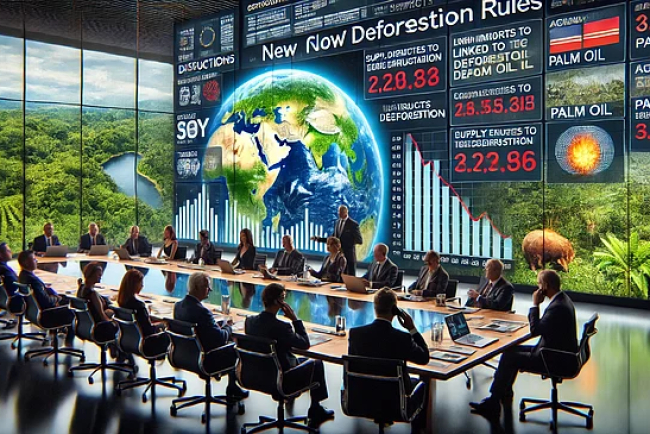Sustainability: The Key to Lasting Business Success, According to TERI
Arupendra Nath Mullick from TERI emphasized the importance of integrating sustainability with business objectives at the Outlook Planet C3 Summit, discussing frameworks like BRSR and ESG that guide companies in achieving long-term success. Businesses must align their sustainability efforts with their core goals to stay competitive and future-proof their operations.

Companies Must Align Sustainability Goals with Business Goals for Long-Term Success: TERI's Mullick
During the course of delivering his speech at the Outlook Planet C3 Summit and Awards on March 10-11 at Bharat Mandapam, Arupendra Nath Mullick, Vice-President, TERI's Council for Business Sustainability, emphasized that companies must align sustainability goals with business goals for long-term success. Mullick spoke to a gathering of small and medium enterprises (SMEs) and corporations to highlight the way in which sustainability practices have become a vital component of competitiveness in the global economy. During his address, he discussed guidelines like the Business Responsibility and Sustainability Reporting (BRSR) and environmental, social, and governance (ESG) metrics and how these provide firms with a blueprint to stay relevant in a shifting global economy.
BRSR framework demands that companies report on their sustainability efforts, i.e., environment, society, and governance. Mullick stressed that the framework being universal for all industries is the manner in which companies go about making and reporting on their sustainability initiatives, which is different. He went on to say that companies are no longer being requested to answer questions about their reports but actually need to prove, through quantifiable action, that their sustainability initiatives exist and are effective.
Mullick also reiterated that sustainability must be embedded in business objectives. He explained that, for businesses to rank high on ESG scores, they must demonstrate that sustainability is not an isolated, optional process but an inherent part of their business model. The sustainability agenda, Mullick said, needs to be matched with long-term business objectives so it will be a harbinger of long-term success and also gearing up for future regulation and standards. He emphasized that by these roadmaps, companies are following existing standards but also getting geared up to follow future regulatory requirements.
Most of Mullick's address was dedicated to the topic of small and medium enterprises (SMEs), calling upon them to go green. In his view, SMEs could clear the customer audit as well as industry rating agencies by embracing policies of sustainability. This would create new avenues for expansion and make them competitive globally.
Mullick also talked about the new challenges corporations are facing due to new environment and social issues such as water pollution, rising disparity, urban air pollution, and financial pressures. They are not actually ethics or compliance matters but are changing the way corporations need to become in order to stay relevant in the long term. Corporations will need to address them as part of their long-term strategic plan to keep growing and surviving.
Sustainability, according to Mullick, should never be confused with corporate social responsibility (CSR). It is an over-riding strategy that pervades all elements of the business value chain ranging from raw materials acquisition to manufacture, logistics, and product life-after-use disposal. Sustainability no longer refers to individual initiatives but rather to environmental and social responsibility being mainstreamed across all operations of the business.
Mullick also pointed to India's target of net zero emissions by 2070, set on the basis of economic and energy growth modeling by TERI. He further said that companies of all sizes would have to reform themselves to ensure a more sustainable future.
Conclusion: businesses now are being forced to integrate sustainability into their business, not just compliance, but as a key driver of long-term success. By utilizing tools like BRSR and linking sustainability to overall business objectives, businesses can position themselves to stay competitive and future-proof their business in an increasingly dynamic world market.
Source: Outlook Planet C3
What's Your Reaction?

















